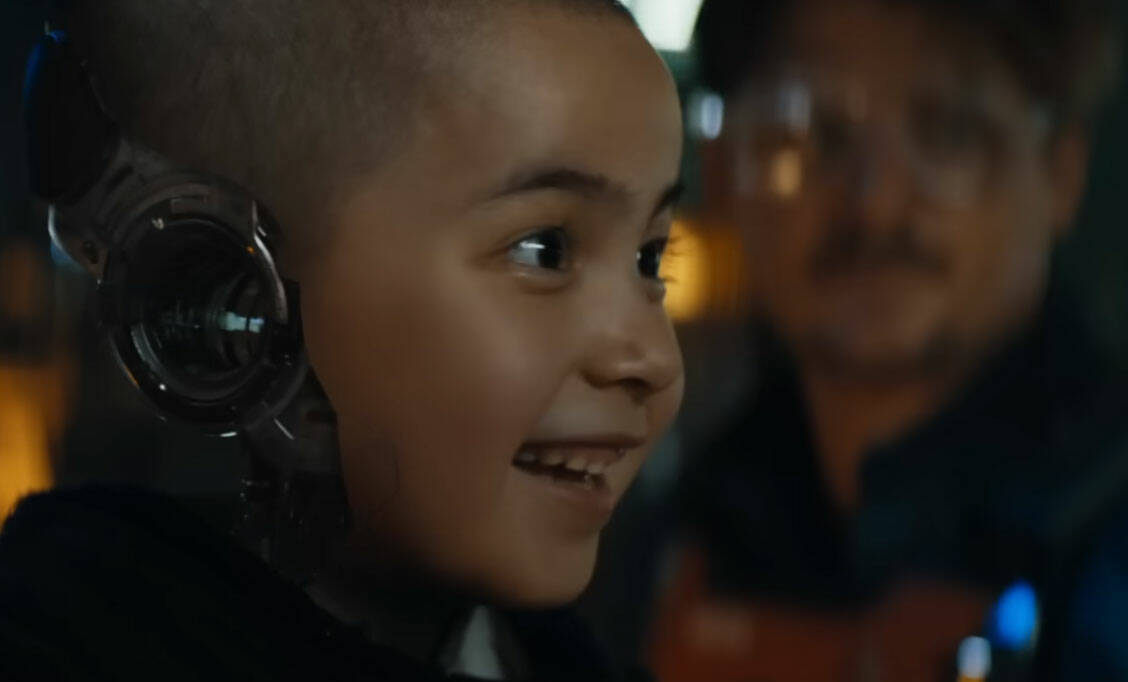“The Creator” is a film stuffed with interesting visuals and ideas. It’s a treat to watch, and its central two performances more than manage to carry attention — particularly that of 9-year-old leading actress Madeleine Yuna Voyles. Unfortunately, the interesting ideas of the film are never followed through to any satisfying conclusions, leaving the film as a whole feeling hollow.
Set in an original, near-ish future take on Earth, “The Creator” centers on a conflict between the United States of America and a fictional amalgamation of various Asian cultures and environments — Chinese, Japanese and Nepalese imageries used at different times — termed “New Asia.”
Artificial intelligence has developed to achieve true sentience, manifesting both as robots and as “simulacrums” — which have human appearances. The machine life-forms face persecution in America after a nuclear warhead is detonated in Los Angeles, leaving much of the city in ruins and even more of it uninhabitable. In New Asia, however, the machines are afforded their individuality and treated as equals.
The world of the film is vividly realized, largely by leaning on the imagery of those Asian cultures. Rarely a moment passes by without something visually arresting being depicted on screen, including a massive space station that pursues the leads like a specter from space, a cyberpunk cityscape, and a machine monastery.
The film follows John David Washington’s Joshua. Formerly an undercover agent of the U.S. Army, he lost his wife in New Asia while searching for the creator of the machines — whom the Americans would like to assassinate. He returns to the Eastern Hemisphere chasing evidence that she may be alive, and then finds himself partnered with Alphie, the first machine child, played by Voyles. She is the secret weapon of Joshua’s enemy — just a child, but growing into something more.
What follows is a popular trope in modern science fiction and fantasy entertainment. Gruff middle-aged man finds himself softened by child who is central to the plot. Like “The Mandalorian,” “The Last of Us,” “Logan,” “The Witcher” and “Stranger Things.”
That central relationship between Joshua and Alphie is strong and is well acted. It’s engaging to see Joshua’s eyes opened by his time spent with Alphie, but it’s the resulting view of the world that doesn’t really coalesce.
“The Creator” never interrogates the ethics or philosophy of artificial intelligence. It takes for granted that the machines are indeed sentient beings, which sets the stage for interesting storytelling by instead making them an equal, but other, species. Through that lens, it loosely tackles bigotry, war, morality and religion, while failing to actually say much about any of it.
This film is filled with moments that feel evocative — that should be emotionally and thematically resonant — but it never makes an effort to tie everything together. The American military is portrayed as being almost comically evil in a way that could be construed to mean something, but it really doesn’t feel like the film has any interest in making that point.
We see American soldiers invading and bombing New Asia without provocation, driving tanks through villages and sending sentient machines of their own on terroristic attacks — against the will of those machines. At every turn, we see the machine life-forms of New Asia refuse to respond in kind — their ultimate play to end the war being a synthetic life-form with no concept of hate.
We see Americans describe the machines as being less than human, while the machines are portrayed as emotional beings — a central character saying “those things … have bigger hearts.” They are shown to have organized religion and spiritual beliefs. Some of the most engaging moments of the film are brief depictions of their lives; a bus-driving robot has old, shaky hands, and a robot dressed for work drives home with groceries for their family.
These aren’t the stories the film is interested in centering, though. Instead, it’s about Joshua, a “bad man” who will do anything to see his wife again, largely removed from the most interesting ideas in “The Creator.” His is a story of redemption, but by the time the credits roll, nothing further is said about the machines driving the story.
“The Creator” shows off a thought-provoking and vividly realized original setting, even if it fails to capitalize on its own ideas. Especially dropping in a largely quiet fall film season, it’s a great choice for those looking for a tried-and-true adventure story and spectacle, standing well apart from the horror movies otherwise dominating theater screens.
“The Creator” will be playing this weekend at the Homer Theatre. Check showtimes and purchase tickets at homertheatre.com.
Reach reporter Jake Dye at jacob.dye@peninsulaclarion.com.


